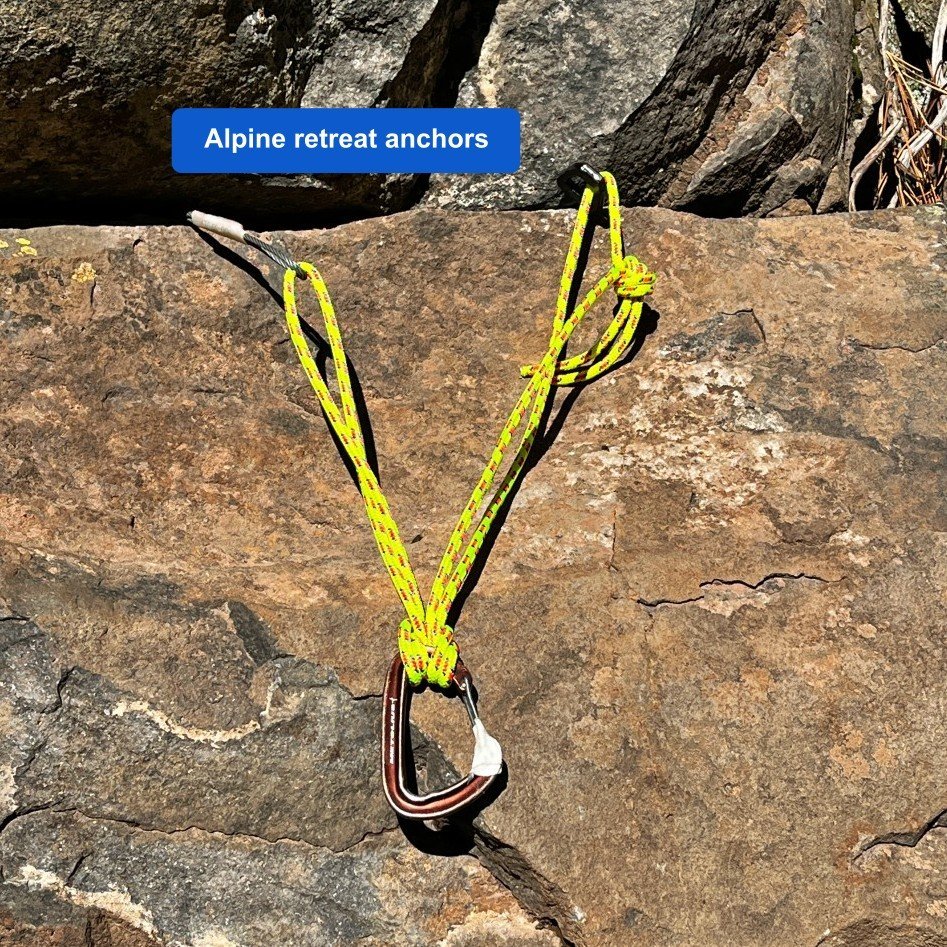Alpine climbing - carry 6mm cord
For alpine climbing, it can be very handy to have some 6 mm cord stashed in the bottom of the pack. Why?
Inexpensive. This handy package from Sterling is $15 for 30 feet/9 meters. In terms of low cost and high utility, it's a winner.
Strong enough. 6 mm cord is rated to about 7.5 kN, as mentioned in this article on climbing gear strength ratings. Some people prefer 7 mm cord for general purpose anchor building, but in many cases, 6 mm will be fine. (Notice the label in the photo above; Sterling says okay for anchor building.)
Easy to cut and leave behind for rappel anchors. You're not going to think twice about leaving behind $3 worth of cord at a rap anchor, But you may not be too thrilled about cutting up your $25 tech cord cordelette. (And you DO have a knife, right?)
Can be used for most any sort of friction hitch (including fancier rescue rope tricks, like tying a friction hitch and then using the rest of the cord to make a releasable Munter Mule Overhand (MMO).
If everyone on your team carries a few meters of 6 mm cord, you can combine materials to make multiple rappels off of just about any route.
Here's a photo from my article on alpine retreat anchors. I'm using about 2 meters of 6 mm cord to make an equalized, redundant and plenty strong enough rappel anchor from a stopper and piton.


